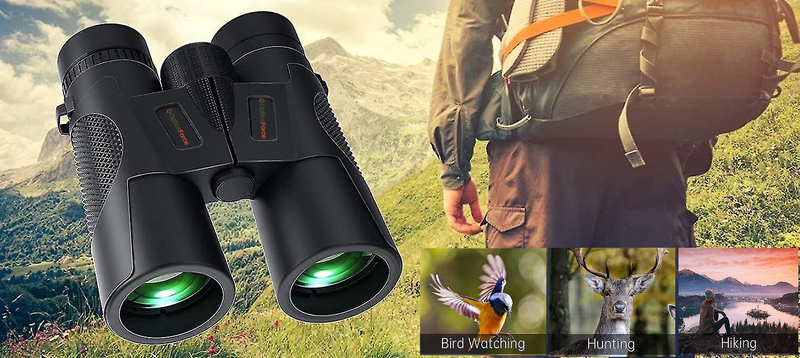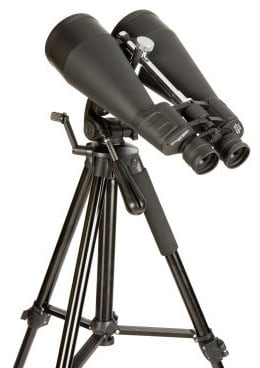Checking Out Various Sorts Of Binoculars for Exterior Adventures
Wiki Article
The Significance of Field Glasses in Education and Scientific Study: Exactly How These Optical Instruments Contribute to Discovering and Exploration
The integration of binoculars into academic settings and scientific research study is commonly forgotten, yet their payment to boosting empirical abilities is substantial. In techniques varying from ecological scientific research to astronomy, field glasses offer as necessary devices that advertise query and important reasoning.Enhancing Observational Abilities
In academic and research study settings, the use of binoculars substantially enhances observational abilities amongst trainees and practitioners alike. These optical instruments facilitate a deeper understanding of far-off subjects, enabling customers to observe information that would certainly or else stay unseen. By employing field glasses, students can take a look at wildlife, astronomical sensations, and geological developments, promoting a more extensive link to the topic.Binoculars work as essential devices in field studies, encouraging pupils to engage proactively with their setting. With enhanced monitoring, they can gather information better, resulting in improved logical abilities. This hands-on experience enables for the development of crucial thinking, as pupils need to translate what they see and relate it to academic understanding.

Bridging Theory and Method
Empirical abilities developed through the use of binoculars normally result in a more profound combination of academic expertise with practical application. By participating in direct observation, learners can transform abstract ideas right into substantial experiences. This harmony cultivates a much deeper understanding of clinical concepts as pupils connect theoretical frameworks with real-world phenomena.For example, when studying avian biology, trainees can apply their understanding of bird composition and habits with the lens of field glasses, observing attributes such as plumage variation, feeding habits, and migratory patterns. This direct engagement not only reinforces theoretical concepts but also cultivates vital thinking and analytical skills.
Furthermore, using binoculars encourages learners to develop hypotheses based on their observations, consequently improving their clinical query skills. They can actively evaluate these hypotheses in the area, causing a much more experiential discovering atmosphere that promotes curiosity and expedition.
Basically, binoculars work as a crucial tool in bridging the void between class learning and fieldwork - Binoculars. They encourage trainees to become energetic participants in their education and learning, motivating a holistic technique to understanding the environment and its intricacies. Thus, the assimilation of theory and technique is essential for cultivating notified and involved learners
Applications in Environmental Scientific Research
Utilizing binoculars in environmental scientific research enhances the capacity to observe and analyze ecological communities with higher precision. These optical instruments are necessary for conducting area researches, enabling scientists to monitor wildlife populaces, assess plant health and wellness, and examine environment conditions without disrupting the natural surroundings. Field glasses help with the identification of varieties at different distances, permitting researchers to gather important information on biodiversity and behavior.In environmental research, binoculars are vital tools for ornithologists examining bird habits and migration patterns. They make it possible for scientists to record monitorings over extended periods, adding to valuable longitudinal research studies - Binoculars. Furthermore, binoculars play a crucial duty check these guys out in environment analyses, as they permit for the detailed observation of plant communities and their interactions within communities
Environmental teachers also benefit from field glasses, as these instruments improve experiential discovering chances. Trainees can engage directly with their surroundings, fostering a deeper appreciation for ecological systems. By including binoculars into curricula, instructors can motivate the future generation of ecological scientists.
Role in Astronomy Education
Using field glasses in astronomy education and learning supplies an easily accessible entrance for students and fanatics to discover celestial phenomena (Binoculars). Unlike huge telescopes, field glasses are portable, user-friendly, and reasonably affordable, making them a perfect introductory device for observing the night sky. Pupils can quickly engage with the cosmos, cultivating a hands-on knowing experience that enhances their understanding of expensive ideasBinoculars permit individuals to observe a variety of holy items, consisting of the Moon, worlds, and galaxy. This availability encourages expedition and observation, essential elements of scientific questions. Trainees can develop critical abilities such as data collection, monitoring methods, and also basic astrometry. Importantly, field glasses function as a bridge to a lot more complex you can try these out huge instruments, providing fundamental experiences that can spark deeper passion in the field.
In academic setups, assisted binocular sessions can promote group collaboration and discussion, boosting the finding out experience. The common experience of observing celestial objects can cultivate a feeling of area among learners. Generally, field glasses play a vital role in demystifying astronomy, making it approachable and appealing for people in all degrees of education.

Inspiring Inquisitiveness and Inquiry
Binoculars not just facilitate the observation of holy sensations but likewise ignite a sense of interest and questions among trainees. By supplying a closer take a look at far-off things, field glasses encourage learners to ask inquiries and discover the environment around them. This tool transforms easy knowing into an energetic, interesting experience, promoting a much deeper understanding of clinical concepts.When students make use of binoculars to observe wildlife, landscapes, or expensive objects, they develop empirical abilities that are essential for scientific query. The act of concentrating on certain information prompts them to formulate hypotheses, carry out investigations, and reason based upon their monitorings. This procedure not just boosts their essential thinking abilities but also nurtures a long-lasting interest for exploration.
Additionally, field glasses can link the void between academic expertise and real-world application. As trainees observe phenomena firsthand, they can link classroom learning to useful experiences, making education much more pertinent and purposeful. Eventually, making use of binoculars in instructional setups functions as a catalyst for inquisitiveness, encouraging students to go after understanding with enthusiasm and fostering a feeling of question the globe around them. By doing this, binoculars play a vital role in motivating future generations of researchers and thinkers.
Final Thought
In summary, why not look here field glasses serve as essential tools in education and clinical study, dramatically boosting observational abilities while linking the space in between theoretical expertise and useful application. Their varied applications in fields such as ecological science and astronomy highlight their importance in promoting inquisitiveness and inquiry amongst students. By assisting in detailed assessments of far-off topics, field glasses not only influence the future generation of scientists however additionally cultivate a profound admiration for exploration and the scientific technique.Report this wiki page